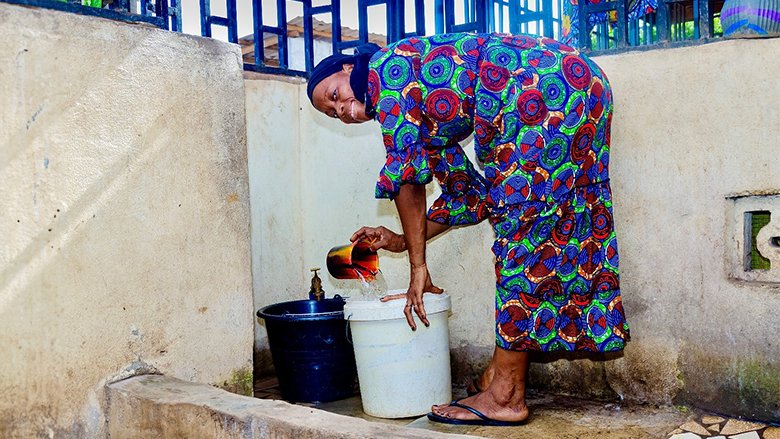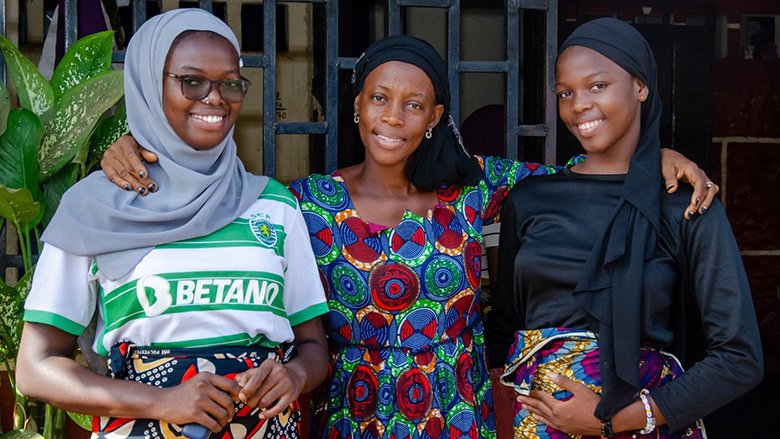Every morning at the crack of dawn, Sig Madina, a working class neighborhood, wakes up to the sounds of vendors hawking jerrycans of water from their carts for GF 2,000 to GF 5,000, depending on the size of the can. Today, the people of Sig Madina have access to the safe water they need for their daily survival.
But this was not always the case. Just a couple of years ago, water was hard to come by in Sig Madina. Households struggled to buy the bare minimum from the vendors. On any given day, Makalé Cissé, a mother of five, could only buy twenty 20-liter cans to meet her family’s washing, cooking, and drinking needs, costing her the equivalent of US$60 a month, or about 20 percent of her monthly budget.
When funds ran low, Makalé and her daughters would walk two kilometers, water cans on their heads, just to fetch water at the closest public standpipe. Getting up early was the only way then.
As she explained, “Not only was it a long way to go, but the quality of the water wasn’t even good enough. My children would often get sick; plus, having to go and fetch water affected my daughter’s performance at school.” Her eldest daughter, Aïssatou, failed her Baccalaureate exams twice. She explained what happened: “I would often leave late for school and had no time to go over my lessons. I had no choice, I had to help my mom.”
Just like families in Sig Madina, many other households in Conakry and its suburbs faced the same challenges in getting the safe water they needed, because of crumbling water pipes dating back to colonial times.


